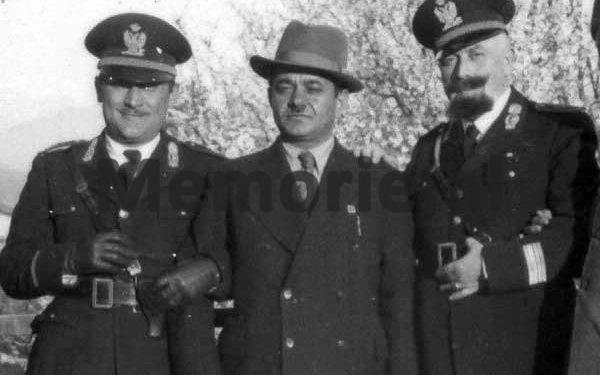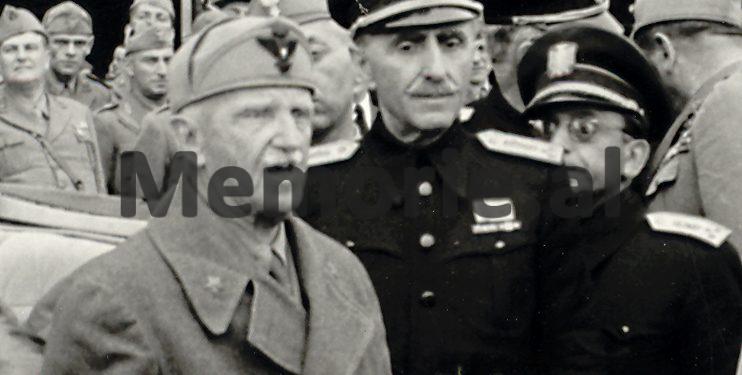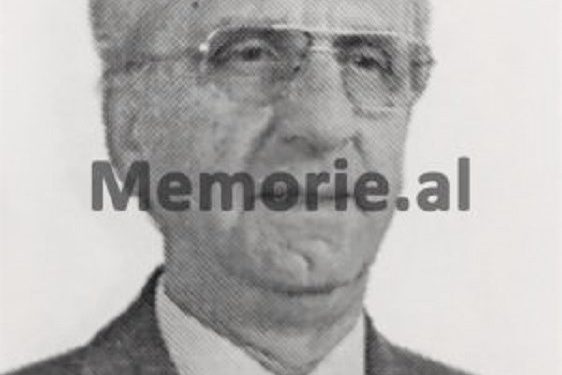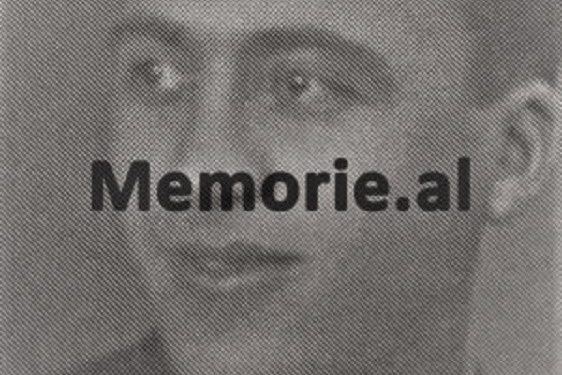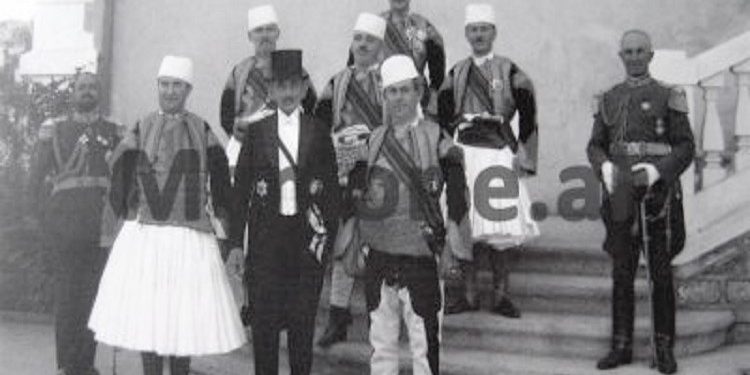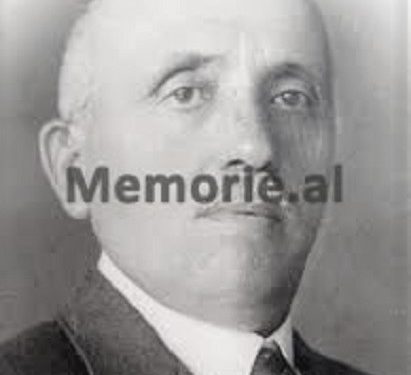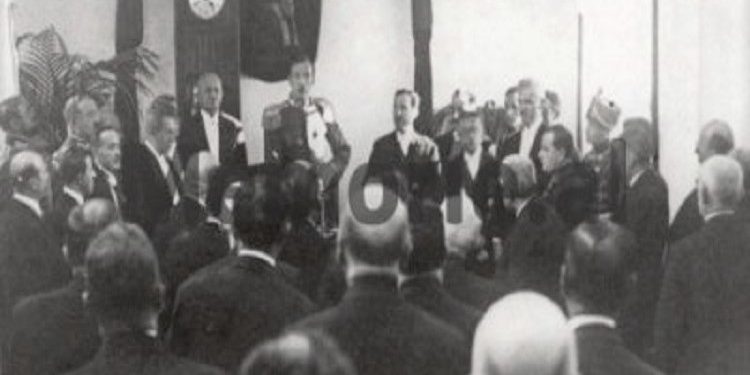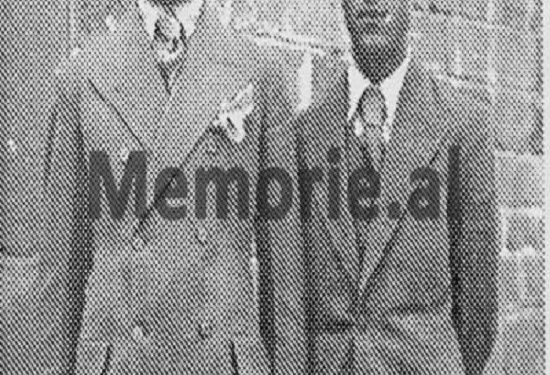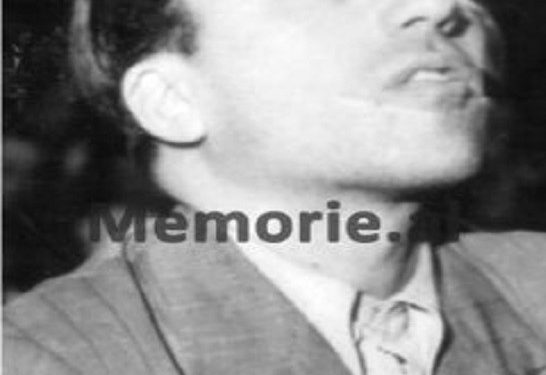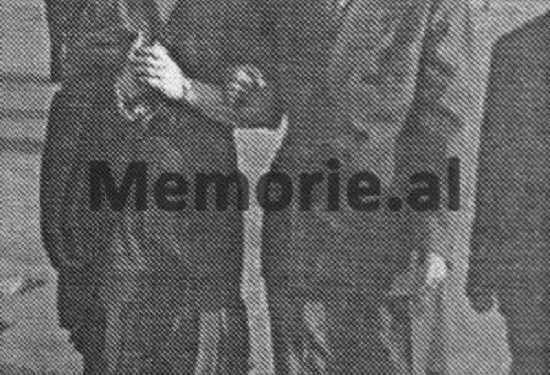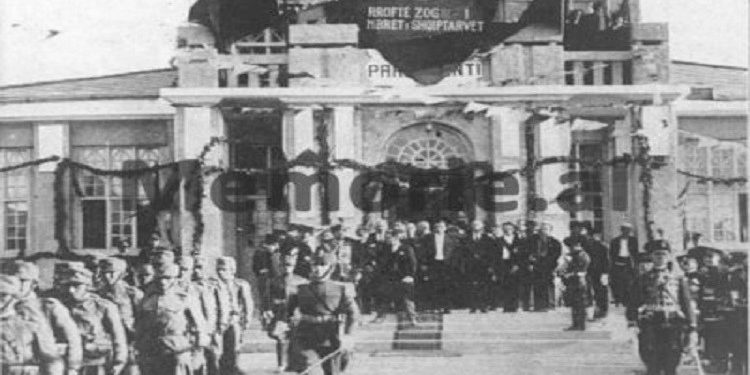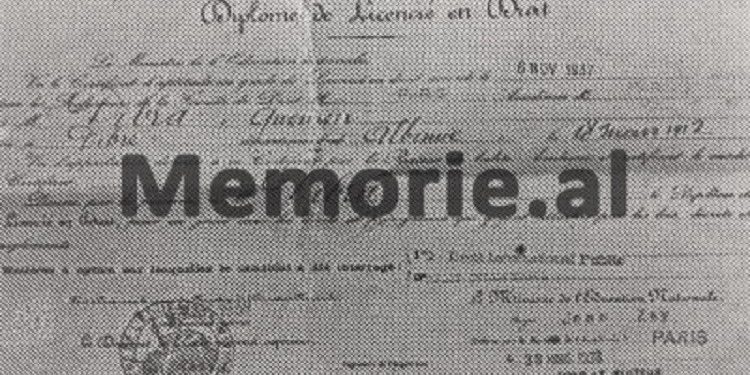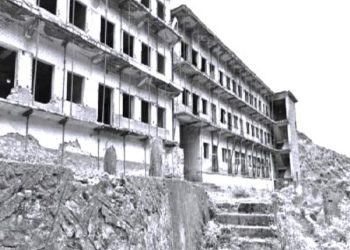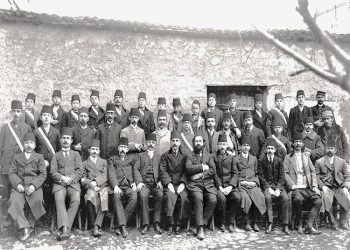Dashnor Kaloçi
Memorie.al publishes the unknown story of Abdurrahman Dibra, originally from Dibra e Madhe, who after graduating in Political Science in the capital of the Ottoman Empire, by decree of the Sultan was appointed Deputy Prefect of Istanbul, serving in that high position until in 1921, when he responded to Zog’s call to return and give his contribution to Albania.
Abdurrahman Dibra’s long political career, starting from the deputy of Velika Dibra since the first elections of the Albanian parliament in the spring of 1921, until 1939, for 19 years, during the period of the Zog Monarchy, he served as minister in several government cabinets, leading the departments of Internal Affairs, Culture and Finance.
Abdurrahman Dibra withdrew from the political scene after April 7, 1939, when Italy carried out fascist aggression against Albania and refused to go to Italy, with the delegation that sent the Crown of Skanderbeg to King Victor Emmanuel III.
Although my father Abdurrahman Dibra had been the deputy prefect of Istanbul and served for 19 years as a minister and deputy during the period of the Zog Monarchy, with the coming of the communists to power at the end of 1944, he had no problem with them, the vicissitudes of our family started after the arrest of our older brother, Qenani, who had graduated in Law in Paris and in one of the Italian military academies. After Qenan was arrested, they took us out of the house on Saraçëve Street and seized everything, leaving us in the middle of the street, telling us to go wherever we wanted. On June 17, 1946, Qenani was brought before the Military Court in Tirana, along with 37 other defendants, and he was sentenced to death, accused of being the leader of the “Monarchist” group, which together with the “Social” group “Democrats”, led by Musine Kokalari and “Resistance” led by Sami Qeribashi, had united and formed the opposition, anti-communist group called “Democratic Union” led by Sami Qeribashi “. This is how Urhan Dibra recalls for Memory .al, the story of his father Abdurrahman Dibra, the former deputy prefect of Istanbul, who after serving for 19 years as deputy and Minister of Interior, Finance and Culture, during the Zog Monarchy, was imprisoned for ten years by the communists. Also in his story, Urhan Dibra tells the tragic story of his brother, the elder Qenan Dibra, a graduate of Paris and Rome, who was sentenced to death by the communists in 1946, after being accused of being the leader of a group opposition, antikomu nist called the “Monarchist Group”.
Abdurrahmani, deputy prefect in Istanbul
Abdurrahman Dibra was born in 1885, in the city of Velika Dibra, where his father Elmaz Dibra, at that time served as treasurer of the Municipality. Of Elmaz Dibra’s three sons, only the eldest Abdurrahmani became famous for his political activity, while the other two, Xhevdeti and Rahimi, had a life quite different from that of their brother. Rahimi finished high school in the city of Bitola and then went to Istanbul, where he attended university in the field of Political Science. After graduation, Rahimi worked in Istanbul as a journalist and never returned to Albania. Unlike the other two brothers who attended higher education, Xhevdet was not educated and during the years of the Monarchy, he served as a gendarme assisted by his brother Abdurrahimi, who held high state functions at the time. Regarding Abdurrahman’s education and the beginning of his career, administrative and political, his son Urhan Dibra testifies: “After finishing primary school in his hometown Dibër, father Abdurrahmani continued high school in the city of Bitola and then went to the capital of the Ottoman Empire, to pursue higher studies.He enrolled in the Department of Political Science, Istanbul University, which he graduated with honors in 1908, receiving the “Gold Medal” as one of the most students Seeing his high results, the High Gate appointed him to the local Ottoman administration and after a short time, by decree of the Sultan, he was appointed to the post of deputy prefect of Istanbul.During the years that my father Abdurrahmani , attended higher education in Istanbul, stayed in a room with the boy from Mati, Ahmet Zogu, who was ten years younger than him. When he was appointed Minister of Interior, he called on Abdurrahman to leave Istanbul and return to Albania. “The father responded positively to his invitation and in the spring of 1920, he came to Albania and immediately met with Zog in Tirana”, testifies Abdurrahman’s son.
19-year deputy and Minister of Zog
“After returning to Albania and talks with Zogu, the father agreed to integrate into the political life of the country and at the beginning of 1921, he ran for deputy in the Prefecture of Velika Dibra, where together with Ahmet Zogu, he won the right to be a from the representatives of that Prefecture, in the First Albanian Parliament, which began its work on April 21. At that time, in addition to Ahmet Zogu, one of the most famous politicians, the father also had close friendships with Myfid Libohova, Ekrem Bey Vlora, On May 27, 1924; Prime Minister Iljaz Vrioni summoned his father and asked him to retain the portfolio of Minister of the Interior in his cabinet, which he accepted. In addition to him, Koço Kota as Minister of World Affairs and Sulejman Delvina as Minister of Finance also took part in this ministerial post around Fan Noli and Luigj Gurakuqi, organized an armed uprising and with the force of arms overthrew the government of Iljaz Vrioni, where the father held the post of Minister of Interior. With the entry of the fanatical rebel forces in Tirana, the father was forced and left the capital, as he was wanted by them at all costs to be physically eliminated, for the very delicate function of Minister of Interior, which he had held. After leaving Tirana, the father went to Dibër e Madhe, to our people. During the time that his father was sheltered there, the King of Serbia (Nikola Pashiqi), given the position that Abdurrahmani had, in the Government of Tirana, sent him an invitation and asked him to cooperate with him, offering him large sums with money. Abdurrahmani’s father categorically refused to cooperate with the Krajl of Serbia and remained in hiding for several months, after sniffing that he was wanted by Belgrade’s secret services. With the return of Ahmet Zogu to power at the end of 1924, the father returned to Tirana and was re-elected as a deputy of Dibra e Madhe, in the parliamentary elections that took place on May 27 of that year. On February 12, 1927, Prime Minister Ahmet Zogu entrusted his father with the post of Minister of the Interior, which he held until May 10, 1928. At the time his father was appointed Minister of the Interior, like all senior government officials and members of parliament, he legally acquired a plot of land on which he built his house on Saraçëve Street. After 1928, Abdurrahman Dibra’s father was appointed Minister of Finance, a position he held until 1936. After that year, my father was appointed Minister of Education, which he held until April. of 1939. Throughout the period of the Monarchy, my father had a very good and correct relationship with Ahmet Zogu, he invited him to all the ceremonies and dinners of the close family circle. Also, one of his father’s closest friends was Professor Aleksandër Xhuvani, whom he appointed to the position of Deputy Minister of Education, during the years he was in charge of that department. One of my father’s biggest opponents was Shefqet Vërlaci, with whom he never found the language of understanding. During his long twenty-year career, which his father had as an MP and three times a minister, in addition to the official hours he spent working in the office, most of the time he spent at home reading and studying books. “Abdurrahman had a good memory and thanks to her, he had learned several foreign languages, such as: Turkish, English, Italian and French”, recalls Urhan Dibra
Interned by Shefqet Vërlaci
Abdurrahman Dibra’s political career ended on April 7, 1939, the day fascist Italy carried out military aggression against Albania. While on the morning of April 7, Abdurrahmani refused to leave Albania together with King Zog and part of the Royal Court, he refused to participate, not even in the Albanian government, which was created in those days under the pressure and violence of the Italians. . In the first days of April 1939, Abdurrahman rejected the request, which was made to him to go to Rome with a high Albanian delegation, which would bring the Crown of Skanderbeg, King of Italy, Victor Emmanuel III. In this regard, his son Urhani says: “Based on the anti-fascist political convictions that his father had, as well as the refusal he made to the request to go to Rome with the delegation that took Skanderbeg’s Crown to the King, Victor Emanuel, at the beginning of the year He was deported by the Italian fascist authorities to Italy in 1940. Shortly after his deportation, on the proposal of Prime Minister Shefqet Vërlaci, with whom his father had always had problems; all our movable and immovable property was seized. The decision to seize this property states:
Council of Ministers
No.306 with 1-III-940
DECISION
The Ministerial Council in its meeting today held under the chairmanship of Mr. Shefqet Vërlaci, Prime Minister and Deputy. Minister of State for the World, with member ZZ Tefik Mborja, Minister Secretary of the Albanian Fascist Party, Xhafer Ypi, Minister of State for Justice, Maliq Bushati, Minister of State for Interior, Fejzi Alizoti, Minister of State for Finance, Ernest Koliqi, Minister Secretary of State for Education, Anton Beça, Minister Secretary of State for the National Economy, based on Article 9 of the Viceroy Decree dated 2 June 1939-XVII, announced in the Official Gazette No. 39 dated 9 June 1939-XVII.
Decided
Confiscation of movable and immovable property, seized by various Decree of the Minister Secretary of State for Justice, pursuant to Article 2 of the above Decree, the persons indicated in the list attached to this decision, with the exception of the house he owns in the “Abdullah Bej” neighborhood of Tirana, Abdurrahman Dibra, which is thanks to the family housing, the family of the late Et-hem, Ismet and Tahsim Toto, a family which consists of widows, minor children, father and student brother. It’s one with the original.
Secretary General of the Council of Ministers
(Yzedin Beshiri)
(AQSH. F. 249 v 1940 D.III 263 f.120).
While our house was given to the family of brothers Ismet and Et’hem Toto, we were allowed to live in its basement, while on the third floor, they brought the family of an Italian doctor. We would have been removed from the house altogether, but left to live in its basement, only thanks to the intervention of Xhaferr Ypi. The real estate that was seized from us included 60 dynyms of land, most of which was at Lapraka airport. A large part of the money raised from the sale of our lands was donated to the Albanian Red Cross. After a four-year stay in exile in Italy, where Abdurrahmani’s father was with close friends; Removed Delvina and Suat Asllani, he returned to Albania in September 1943, when Italy capitulated. Upon his arrival in Tirana, during the period of German occupation, my father searched for and reclaimed a large part of the properties that the Italians had unjustly seized from us. Until the end of the War, my father stayed home and did not interfere in politics at all. Even after the end of the War at the end of 1944, although Abdurrahmani had served for almost 19 years as MP and Minister of the Zog Monarchy, the communists who came to power did not disturb him. But the great vicissitudes for our family began in the spring of 1946, when the Communists arrested his older brother, Qanani, who had graduated with a degree in Law, in Paris, and at the Military Academy in Rome. “Brother Qenani was accused of being the leader of a Monarchist group, which had joined two other groups: Social Democrat and Resistance led by Musine Kokalari and Sami Qeribashi”, Urhan Dibra recalls about his brother./Memorie.al
Continues in the next issue




